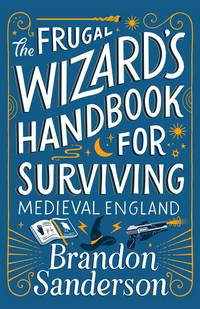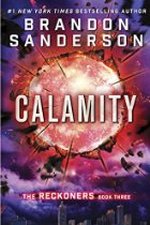 The Frugal Wizard’s Handbook for Surviving Medieval England
The Frugal Wizard’s Handbook for Surviving Medieval England
DETAILS: Publisher: Tor Books Publication Date: June 27, 2023 Format: Hardcover Length: 364 pg. Read Date: July 17-19, 2023

What’s The Frugal Wizard’s Handbook for Surviving Medieval England About?
At some point in the future, scientists discover the ability to move between parallel dimensions, and even find a group of them capable of sustaining human life—and buy/license exclusive access to some of them with histories and developments similar to our own, but delayed somewhat, so that visitors from “our” world look advanced. And then you “sell” these universes to people who are looking for the ultimate getaway.
Sure, sometimes you temporarily lose your memory when you travel to your new dimension. So you need to write everything you need to know in a book that you carry with you. But if things get bumpy in your entry, that book might catch on fire, removing a lot of your information—so it takes a bit to recover your memory. Which is what happens to John West when he wakes up in a version of medieval England.
I know that Sanderson keeps saying that John West is inspired by Jason Bourne—but that suggests that he’s competent on multiple/several levels and that’s not John. He’s not even a Samantha Caine. He’s more like a Myfanwy Thomas. But for the sake of discussion, let’s go with Bourne okay?
Imagine Bourne wakes up in Terry Brooks’ Landover, and tries to pull off a Hank Morgan-con to convince the locals that he’s a wizard with great power. Throw in a little bit of Wizard in Rhyme‘s mixing of math/quantum physics into fantasy and a Douglas Adams-ish book-within-the-book (heavy on the “ish”) and you’ve got this book.
Oh, and mobsters from his time are wandering around, as is at least one undercover policeman. And they all know John West—and he’s not on anyone’s good side.
So, what did I think about The Frugal Wizard’s Handbook for Surviving Medieval England?
I recognize—and want to remind everyone—that this is a completely subjective thing, and if I’d read this two months ago or two months from now, I’d react differently. But…this was good. Not great. Certainly not bad. Good—but somehow underwhelming.
But I couldn’t shake the feeling the whole time that I should be enjoying it more than I was. I like the tone (although it felt like Sanderson was holding back and wouldn’t let this get as funny, snarky, or whatever as it should’ve been). I love the premise, the characters, the twists, etc., etc., etc. But…it felt restrained? Like he’s trying to assure everyone that no matter what he’s still Brandon Sanderson—he’s not going full-comedy (or whatever). I couldn’t help but wonder if he’d put this out under a pen name if he’d been able to let loose a bit more. If Scalzi, Cline, or Meyer had done this? Absolutely would’ve worked.
It’s been bugging me for days—I absolutely should’ve been raving about this, or at least enthusiastically talking about it. But I’m not. There’s utterly nothing I can point to that explains it, either. All the elements are there for the kind of book that I love, and they were combined to just become something that I liked. Explain that one, Gestalt.
I absolutely recommend this—and think that many readers will find it as enjoyable as I thought I should. And even if you walk away with the same whelmed-level as I did, you’ll have had a good time. But I’m not sure you should rush to it.

This post contains an affiliate link. If you purchase from it, I will get a small commission at no additional cost to you. As always, the opinions expressed are my own.
![]()









